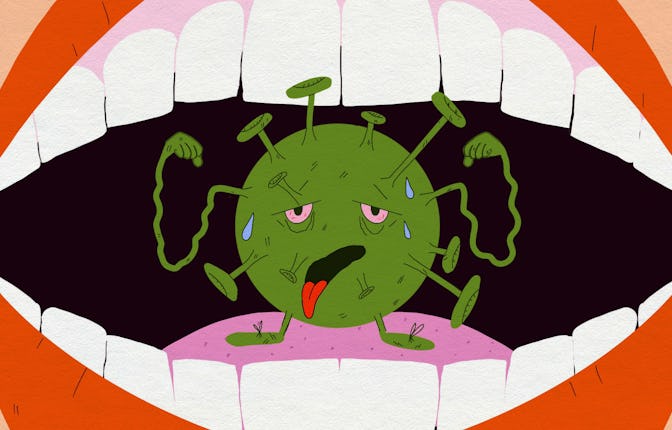4 key factors that could put you at higher risk for long COVID
A new study reveals what's likely making symptoms linger.

For many of us, the prospect of getting long COVID is a lot more terrifying than anything else Omicron might do to us. I know that vaccinated people are less likely to develop long COVID, but the idea of having brain fog and fatigue for an unspecified stretch of my life is still nightmare-inducing. One of the scariest things about long COVID has been that we don’t know why some people seem more prone to getting it than others, but new research has honed in on four key factors that appear to be linked to long COVID.
The small but important study, which was released Tuesday in the journal Cell, looked at 209 people, aged 18 to 89, who were infected with COVID in 2020 or early 2021 in Sweden. Researchers analyzed samples from the patients when they were diagnosed with COVID, again when they were in the acute stage of infection, and then again two to three months later.
Jim Heath, the principal investigator of the study and president of the Institute for Systems Biology, told the New York Times that the study found that 37% of individuals had three or more symptoms of long COVID two to three months after their initial diagnosis. Researchers also found that, of the people who were experiencing long COVID, 95% also had one of four biological factors.
The first of the four factors identified was the presence of autoantibodies — cells that induce the body to attack itself instead of defending itself. The second was the viral load of coronavirus RNA present early in an infection — a.k.a. how much virus is in your body when you’re sick. The third factor is activation of Epstein-Barr virus, a virus that lies dormant in about 90% of people that gets reactivated when some people are infected with coronavirus. The fourth factor is Type II diabetes, which scientists already suspected plays a role in long COVID.
All of that is really science-heavy so let’s break it down. With the exception of Type II diabetes, all of these factors are biological responses to infection. In other words, what this research suggests is that if you get infected with COVID and your body develops autoantibodies, the infection can reactivate dormant Epstein-Barr virus in you, or you have a high viral load of coronavirus RNA when you have an active infection, then you may be more likely to have symptoms of long COVID.
About two-thirds of participants had antiautobodies, which made it the most common risk factor of the four. The problem is that while you are likely to know if you have Type II diabetes, it isn’t easy to tell if your body will develop autoantibodies or if you have Epstein-Barr sleeper cells. The good news is that doctors can check for all of these factors and this research may lead to quicker and more effective treatments that could someday prevent or lessen the effects of long COVID.
“This research stresses the importance of doing measurements early in the disease course to figure out how to treat patients,” Heath told the New York Times. If these findings are confirmed, it could help a lot of people. “We as clinicians can actually design interventions to make people better,” Heath told the Times. “That is the take-home message.” In a world where almost no news is good news, I will definitely take this message as good news.